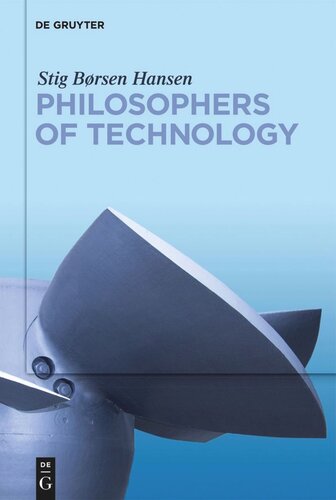

Most ebook files are in PDF format, so you can easily read them using various software such as Foxit Reader or directly on the Google Chrome browser.
Some ebook files are released by publishers in other formats such as .awz, .mobi, .epub, .fb2, etc. You may need to install specific software to read these formats on mobile/PC, such as Calibre.
Please read the tutorial at this link: https://ebookbell.com/faq
We offer FREE conversion to the popular formats you request; however, this may take some time. Therefore, right after payment, please email us, and we will try to provide the service as quickly as possible.
For some exceptional file formats or broken links (if any), please refrain from opening any disputes. Instead, email us first, and we will try to assist within a maximum of 6 hours.
EbookBell Team

4.7
106 reviewsTechnology is increasingly subject of attention from philosophers. Philosophical reflection on technology exhibits a wide and at times bewildering array of approaches and modes of thought. This volume brings to light the development of three schools in the philosophy of technology. Based on thorough introductions to Karl Marx', Martin Heidegger's and John Dewey's thought about technology, the volume offers an in-depth account of the way thinkers in the critical, the phenomenological and the pragmatic schools have respond to issues and challenges raised by the works of the founders of these schools. Technologies in almost any aspect of human life is potentially subject of philosophical treatment. To offer a focused demonstration of key arguments and insights, the presentation of each school is concluded with a contribution to discussions of educational technologies. In addition to philosophers seeking a valuable and clear structuring of a still burgeoning field, the volume is of interest to those working with educational philosophy and value sensitive design.
„Stig Børsen Hansen’s book is a must for all interested in understanding the development of the philosophy of technology and the relation of thoughts of thinkers that have shaped the area. The author presents a new and refreshing take on the ideas from Marx to Marcuse, from Dewey to Latour, and Heidegger to Borgmann. It will engage and hopefully provoke." Dr. Jan Kyrre Berg Friis, University of Copenhagen